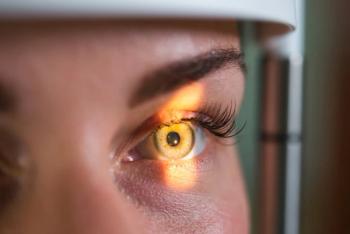
ICD-10 transition costs lower than previously reported
If you’ve been putting off preparing for ICD-10 due to cost, you may be out of excuses. A recent study published in the Journal of the American Health Information Management Association found that the costs of converting to ICD-10 was much lower than previously reported for small practices.
If you’ve been putting off preparing for ICD-10 due to cost, you may be out of excuses. A recent
A 2008 report by Nichimson Advisors to the American Medical Association estimated the cost of
“The controversial delay of ICD-10 implementation was based in part on the perceived time, cost and lost productivity for physician offices to perform the necessary assessment, training, software conversions, testing and ‘super bill’ updates,” the authors write. “Current evidence suggests that the initial estimates of the costs and effort associated with ICD-10 implementation for physician offices has been overestimated and that vendors, health plans, and physicians have made considerable progress with fewer resources than had been previously estimated.”
There were a number of reasons why this study found costs to be much lower than those previously reported. Although not directly related to ICD-10 conversion costs, the costs related to EHR adoption and healthcare initiatives like meaningful use were sometimes included in earlier ICD-10 cost estimates. The authors write that the coding industry is now more knowledgeable and prepared for ICD-10 than when the initial estimates were reported. And finally, the tools necessary to train for ICD-10 are available at a low cost.
“With all the discussion of costs of ICD-10 implementation, it is easy to forget the reasons ICD-10 is critically needed,” the authors write. “It is also important to recognize that there was significant medical society input into the development of ICD-10 so that the additional specificity of ICD-10 reflects the detail requested by physicians.
Forgoing ICD-10 translates into a loss of up to $22 billion for the U.S. health care industry. This does not take into account the projected fiscal and public health benefits that would be lost every year that ICD-9 continues to be used.”
ICD-10 costs for ODs
Rebecca Wartman, OD, the American Optometric Association’s (AOA) point person on ICD-10, says this study’s figures fall more in line with true costs. Dr. Wartman also says that there will likely be additional costs due to loss of productivity because doctors will be slower while they’re getting used to the new system. However, Dr. Wartman says that impact will be short-lived.
“The economic impact won’t be known for some time after the implementation,” says John Rumpakis, OD, MBA, president and CEO of
Dr. Rumpakis says most optometrists fall into one of three camps:
• “The practices that are on the ball and have sent their staff to specific training to be up to speed on ICD-10.”
• “The practices that are waiting for others to come to the rescue so they don’t have to significantly invest in training-EMR vendors, insurance carriers, etc.”
• “The practices that really aren’t paying attention to what the ICD-10 really is or believing that it will affect their practice, if-and they believe it’s a big if-it is implemented. They may be under the impression that the ICD-10 is simply translating an ICD-9 into a new code. They may not understand that it is a whole new ideology of keeping a medical record (even if they only provide refractive services). Or, they may not think it applies to them or that they have very little risk if they don’t adopt it.”
Training will be absolutely necessary for a practice to succeed with ICD-10, says Dr. Wartman.
Medical Economics:
“My concern is that some doctors will not train at all and not understand the new system of ICD-10-CM. While similar to ICD-9-CM, there are some significant differences,” says Dr. Wartman. “I think some doctors will rely totally on their EMR to code for them. This is risky since the output of a code is only as good as the input from the EMR standard language. Documentation outside the EMR programming will not be considered by the system choosing the codes. A physician has to understand the code system and how to select the proper codes.”
Dr. Wartman says the AOA has lists of common codes and some eyecare specific crosswalks between ICD-9 and ICD-10. The AOA also offers
Newsletter
Want more insights like this? Subscribe to Optometry Times and get clinical pearls and practice tips delivered straight to your inbox.








































